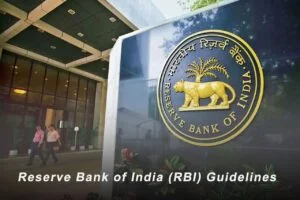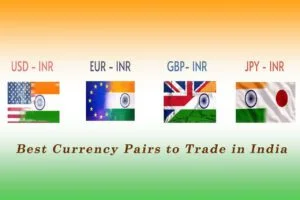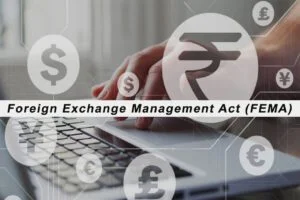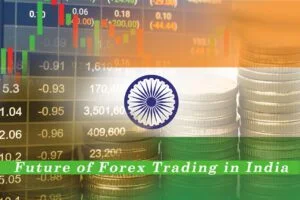Forex Trading Legal in India
Forex trading, also known as foreign exchange trading, has gained immense popularity worldwide, including in India. As more and more people are exploring this lucrative financial market, it is essential to understand the legalities and regulations surrounding forex trading in India. In this article, we will discuss the legal aspects of forex trading.
(1) Introduction to Forex Trading in India
(2) Reserve Bank of India (RBI) Guidelines
(3) Foreign Exchange Management Act (FEMA)
(4) Choosing the Right Forex Broker in India
(5) Best Currency Pairs to Trade in India
(6) Real Life Success Stories of Indian Forex Traders
(7) Future of Forex Trading in India
(1) Introduction to Forex Trading in India
Forex trading, also known as foreign exchange trading, has emerged as an attractive financial avenue for individuals in India and around the world.The concept of forex revolves around buying and selling currencies on the global market, with the aim of profiting from exchange rate fluctuations. In India, the popularity of forex trading has grown steadily,attracting both seasoned investors and enthusiastic beginners.
As a decentralized market, Forex operates 24 hours a day, five days a week, so traders can participate at their convenience.In this introductory guide to Forex trading in India,we’ll cover the basics of this exciting financial kingdom. From understanding currency pairs and market dynamics to navigating the regulatory framework,we aim to equip aspiring traders with the knowledge they need to confidently embark on their forex journey.
The concept of forex revolves around buying and selling currencies on the global market
(2) Reserve Bank of India (RBI) Guidelines
The Reserve Bank of India (RBI) has established comprehensive guidelines to regulate various aspects of the financial system, including forex trading. These guidelines aim to maintain stability, ensure transparency and protect the interests of traders, investors and the overall economy.Here are some key guidelines issued by RBI regarding Forex trading.
1 Authorized Dealers:
RBI has designated some banks as authorized dealers for forex transactions.Individuals and entities involved in forex trading must conduct their transactions through these authorized dealers.
2 Currency Pairs:
The RBI specifies the currency pairs that can be traded in the Indian forex market. Traders can engage in transactions involving the Indian Rupee (INR) against major international currencies such as the US Dollar (USD), Euro (EUR), British Pound (GBP), and Japanese Yen (JPY).Cross-Currency Trading Restrictions: RBI imposes restrictions on cross-currency trading, which involves trading currency pairs other than INR. Leverage Limits: RBI has set guidelines regarding leverage limits for forex trading. These limits regulate the maximum amount of leverage that can be used by retail traders, which helps manage risk exposure.
3 Reporting Requirements:
Traders and authorized dealers have to comply with the reporting requirements specified by the RBI.This includes details of transactions,holdings and other relevant information to
authorized entities.
4 Compliance and Penalties:
Non-compliance with RBI’s guidelines can lead to penalties, fines and legal consequences. It is very important for traders and authorized dealers to adhere to the regulatoryframework and adhere to the guidelines of RBI.
5 Continuous Monitoring:
RBI continuously monitors forex trading activities and market conditions to ensure smooth functioning of the forex market. It may introduce new guidelines or revise existing ones as per the evolving needs of the financial system.It is important for traders and investors to stay updated with the latest guidelines issued by the RBI regarding forex trading.permit in India forex trading. click this PDF: Reserve Bank of India
(3) Foreign Exchange Management Act (FEMA)
The Foreign Exchange Management Act (FEMA) is an important law in India that regulates all foreign exchange-related transactions and activities.Introduced in 1999,FEMA replaced the former Foreign Exchange Regulation Act (FERA) and implemented substantial reforms in India’s foreign exchange management system.FEMA’s primary objectives are to facilitate external trade and payments,promote orderly foreign exchange market conditions and ensure compliance with international obligations.
Basic provisions of FEMA
1 Authorization and Regulation:
FEMA empowers the Reserve Bank of India (RBI) to regulate and authorize foreign exchange transactions in the country.RBI plays an important role in formulating policies, issuing guidelines and supervising foreign exchange transactions to maintain stability and efficiency in the forex market.
2 Foreign Exchange Transactions:
FEMA covers a wide range of foreign exchange transactions including trade, investment, remittances, and borrowing and lending in foreign currency.It regulates the acquisition and transfer of foreign currency,as well as the holding and use of foreign currency assets and liabilities.
3 Current and Capital Account Transactions:
FEMA distinguishes between current account transactions (those related to trade and day-to-day activities) and capital account transactions (those related to investments and financial assets).
4 Authorized Persons:
FEMA designates certain organizations, banks and financial institutions as “Approved Persons”.These firms are authorized to transact foreign exchange on behalf of individuals and businesses subject to RBI guidelines.
5 Realization and Repatriation:
FEMA mandates that all foreign exchange earnings must be realized within a specified period and repatriated to India as per RBI rules.Penalties and Offenses: FEMA outlines penalties for violations and offenses related to foreign currency transactions.Non-compliance with FEMA regulations can result in fines,penalties or legal consequences,which emphasizes the importance of complying with the regulatory framework.
6 Role of Enforcement Directorate (ED):
The Directorate of Enforcement (ED) is responsible for enforcing FEMA regulations and investigating suspected violations.The Foreign Exchange Management Act (FEMA) is an important law that regulates foreign exchange transactions in India. It provides a comprehensive framework for managing external trade and payments, ensuring compliance with international obligations and maintaining stability in the foreign exchange market.in legal in India click this PDF: Reserve Bank of India
(4) Choosing the Right Forex Broker in India
Choosing the right forex broker in India is an important step for anyone involved in currency trading. Forex brokers act as your intermediary in the foreign exchange market, facilitating your transactions and providing the necessary trading tools and resources. Here are some key points to consider while choosing the best forex broker in India.
Regulation and Licensing:
Make sure that the forex broker you choose is regulated by the relevant authorities in India. The broker must be approved by the Reserve Bank of India (RBI) and adhere to the guidelines of the Foreign Exchange Management Act (FEMA). Working with a regulated broker ensures a high level of safety and security of your funds Trading Platforms. Evaluate the trading platforms offered by the broker. Look for platforms that are user-friendly, stable and equipped with the necessary tools for technical analysis and order execution Popular platforms like MetaTrader 4 (MT4) and MetaTrader 5 (MT5) are extensively utilized and favored by numerous traders.
(5) Best Currency Pairs to Trade in India
Check the range of currency pairs offered by the broker. Make sure they offer access to major currency pairs such as USD/INR, EUR/INR, GBP/INR, JPY/INR. and more, as well as other exotic currency pairs if you want to diversify your trading options.
1 Leverage and Margin:
Evaluate the leverage ratio and margin requirements provided by the broker. While high leverage can increase profits, it also increases the risk of loss. Choose a broker that offers appropriate leverage based on your risk tolerance and trading strategy.
2 Transaction Costs:
Consider transaction costs with brokers. These costs include spreads (difference between buying and selling prices), commissions and overnight swap charges. Look for brokers with competitive and transparent fee structures.
3 Customer Support:
Reliable customer support is essential, especially for new traders. Check if the broker provides responsive and knowledgeable customer support through various channels such as phone, email or live chat.
4 Deposit and Withdrawal Options:
Make sure the broker supports convenient and secure deposit and withdrawal methods for your trading account. Common choices encompass bank transfers, credit/debit cards, and e-wallets.
5 Educational Resources:
Look for brokers that offer educational resources, tutorials and webinars to help traders increase their knowledge and skills in forex trading.
6 Trial Account:
A trial account grants you the opportunity to hone your trading skills using virtual funds before venturing into live trading with real money. Choose a broker that offers a demo account to test their platform and strategies.
7 Reviews and Reputation:
Read reviews and feedback from other traders to gauge the broker’s reputation and reliability in the market.Be sure to conduct thorough research and compare multiple brokers before making your decision. Your choice of forex broker can significantly affect your trading experience and overall success in the forex market.
(6) Real Life Success Stories of Indian Forex Traders
Real life success stories of Indian forex traders serve as inspirational examples ofindividuals who have achieved extraordinary success in the forex market. Here are some notable
1 success stories of Indian Forex traders:
Ashok Kumar: Ashok Kumar, a former software engineer from Bangalore, became one of the most famous forex traders in India. He started his trading journey with limited capital and learned the intricacies of forex trading through online resources and educational courses. Through continuous learning and disciplined trading, Ashok turned his initial investment into a significant portfolio.
2 Kritesh Abhishek:
Kritesh Abhishek, a young entrepreneur from Mumbai, has gained popularity for his remarkable success in Forex trading. He started his business journey at a young age and demonstrated exceptional business acumen. Kritesh’s success story attracted media attention and became an influential figure in the Indian forex trading community.Mansi Soni: Mansi Soni, a professional trader from Ahmedabad, is recognized for her achievements in Forex trading. He started his trading journey with limited capital but quickly built a successful trading career through consistent efforts and a systematic trading approach.
These real-life success stories of Indian forex traders demonstrate the potential for individuals to achieve substantial profits and financial freedom through disciplined trading and continuous education.
(7) Future of Forex Trading in India
The future of Forex trading in India holds significant potential as the country continues to experience economic growth, technological advancements and increasing interest in financial markets. A number of factors are likely to shape the forex trading landscape in India in the coming years.
1 Regulatory Developments:
The Reserve Bank of India (RBI) and other regulatory authorities may introduce new guidelines and reforms to further strengthen the integrity of the forex market and investor protection.
2 Increased participation:
As financial literacy improves and technology becomes more accessible, more Indians are likely to enter the forex market. Retail participation is expected to increase, driven by the convenience of online trading platforms and the desire for alternative investment opportunities.
3 Advances in Technology:
The future of Forex trading in India will be greatly influenced by technological advancements. High-speed internet connections, mobile trading apps and sophisticated trading platforms will make forex trading more accessible and efficient.
4 AI and Algorithmic Trading:
Artificial intelligence (AI) and algorithmic trading are gaining momentum globally, and India is likely to witness increased adoption of these technologies in forex trading.
Cryptocurrencies and Digital Assets: The rise of cryptocurrencies and digital assets can impact forex trading in India. Although the regulation of cryptocurrencies is still evolving, the integration of digital assets into the forex market may present new opportunities and challenges.Global Economic Trends: Global economic trends and geopolitical events will continue to influence the forex market in India.
5 Education and Training:
As the forex market grows, so will the need for education and training resources. Trading academies, webinars and online courses may become more prevalent to meet the growing demand for forex education.
6 Risk Management and Investor Protection:
As the number of retail traders increases, there will be more emphasis on risk management and investor protection.Integration of Forex in Investment Portfolio: As awareness of diversification increases, more investors can incorporate Forex trading as part of their investment portfolio.Regulatory Challenges: While the regulatory environment is expected to evolve positively, there may also be challenges in dealing with issues such as fraud, scams and illegal forex trading activities.
Are you fed up with SBI staff ? how to complain sbi staff












